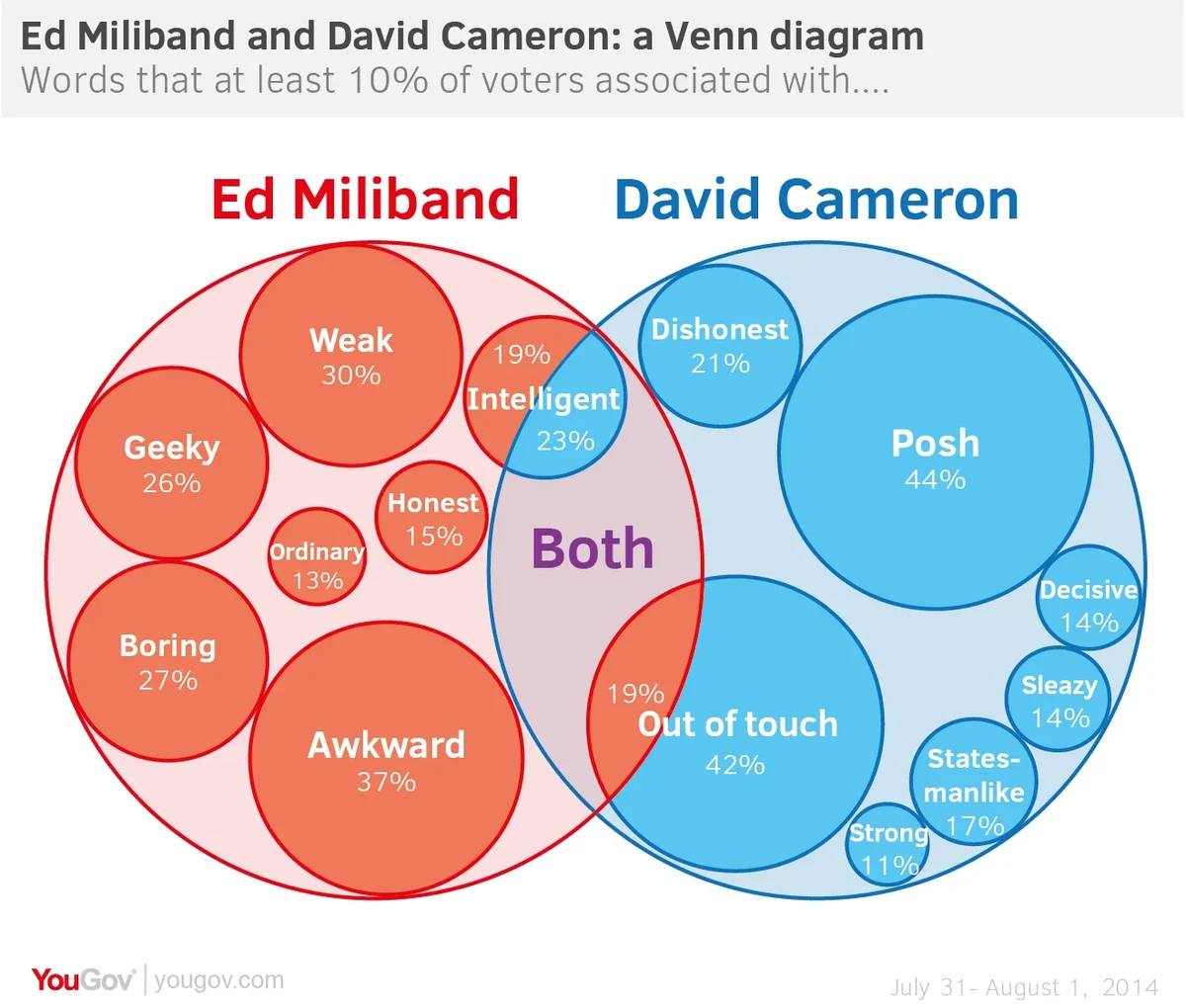Perceptions of David Cameron and Ed Miliband have very little in common, but both have prominent negatives
Recently media commentators and fellow politicians have paid considerable attention to Ed Miliband’s image, and relatively little to David Cameron’s. YouGov’s polling for the Sunday Times confirms that image does pose a challenge for the Labour leader: overall, most voters do not think he looks and sounds like a prime minister in waiting. By contrast, most people do think the prime minister himself looks and sounds like a fit for his current job. Mr Cameron’s job approval rating has also been consistently higher than the opposition leader’s for many months, and improved over the past year where Mr Miliband has floundered.
YouGov’s recent polling for the Sunday Times also asked a more detailed question about image: respondents were shown a list of 16 adjectives – a mix of positive, negative and neutral ones – and were asked which ones they most associated with each leader.
The results, illustrated in the Venn diagram below, show just how strong a contrast has developed between the main party leaders. Only two descriptions from the list are associated with both men by at least one in ten voters – intelligent and out of touch, though twice as many think of the prime minister as being out of touch as Mr Miliband.

The diagram also sheds light on something the debate sometimes misses when talking about image. While Ed Miliband’s image has some big negatives for a party leader and aspiring prime minister – large groups see him as weak, geeky, boring and awkward – hurdles remain for David Cameron, too. More than four in ten think of him as out of touch and posh, and a fifth think of him as dishonest. As many people associate sleaziness with the PM as associate decisiveness with him.
The risk that Ed Miliband’s awkward image might prevent some from voting to make him the face of UK government is real. But Mr Cameron’s posh image also risks compounding real image issues faced by his party, which continues to be seen as a party that “seems to appeal to one section of society rather than the whole country” at a time when the populism of UKIP – and sometimes Labour – already threaten the Tories’ chances in next general election.
Image: PA







